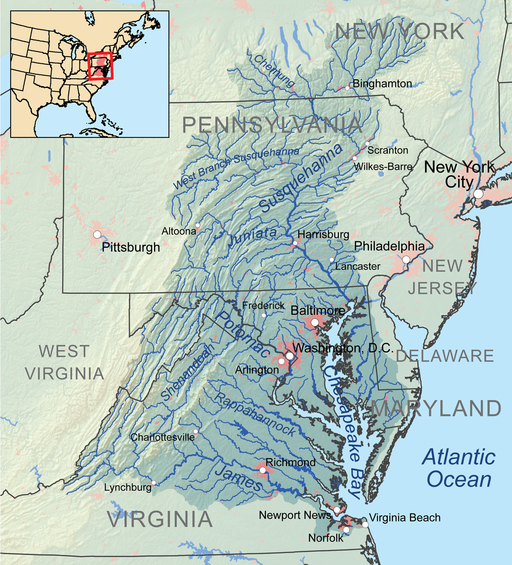Lately I am musing (no, really obsessing) about geography, hydrology, cultural, and political boundaries within the American empire. More details will ensue as I delve into the history of border skirmishes, rivalries, and canal-building schemes in the Susquehanna Basin.
If you look at a map of the eastern US, you see some organic boundaries, which generally follow either river courses or watershed divides, representing natural patterns of human settlement, or at least reasonable attempts to foster the same. Other boundaries are arrow-straight survey lines, representing hasty arbitration, either because the land was previously unclaimed or had rival claims. If the republic ever breaks apart again, these may have to be revisited.

An interesting artifact of the age of hasty surveys is that the biggest river system on the Eastern Seaboard, the Susquehanna, is neither a state border nor a central feature of a single state. Also because of the way it is politically divided, the non-tidal and tidal (i.e. Chesapeake Bay) portions are usually thought of as separate entities. This has had interesting political, economic, and ecological results over nearly three centuries, and may prove more interesting again in the future.

This is just one example of what I am calling the fractal nature of empires. Colonial America, even as it was part of the British Empire, was made of little empires pumping wealth from their hinterlands, coming into conflict with neighboring empires, reaching some level of hierarchy or parity and uniting against the next common rival. New York -vs- Philadelphia becomes North -vs- South, etc. Maybe more fancifully it is like the NCAA tournament, but once you get to the final that's the beginning of the end of a civilization. But in the case of empires in decline the process goes somewhat in reverse, with long-dormant conflicts likely to reappear. Balkanization anyone? True, differences in history and society will mean differences in how things play out...
No comments:
Post a Comment